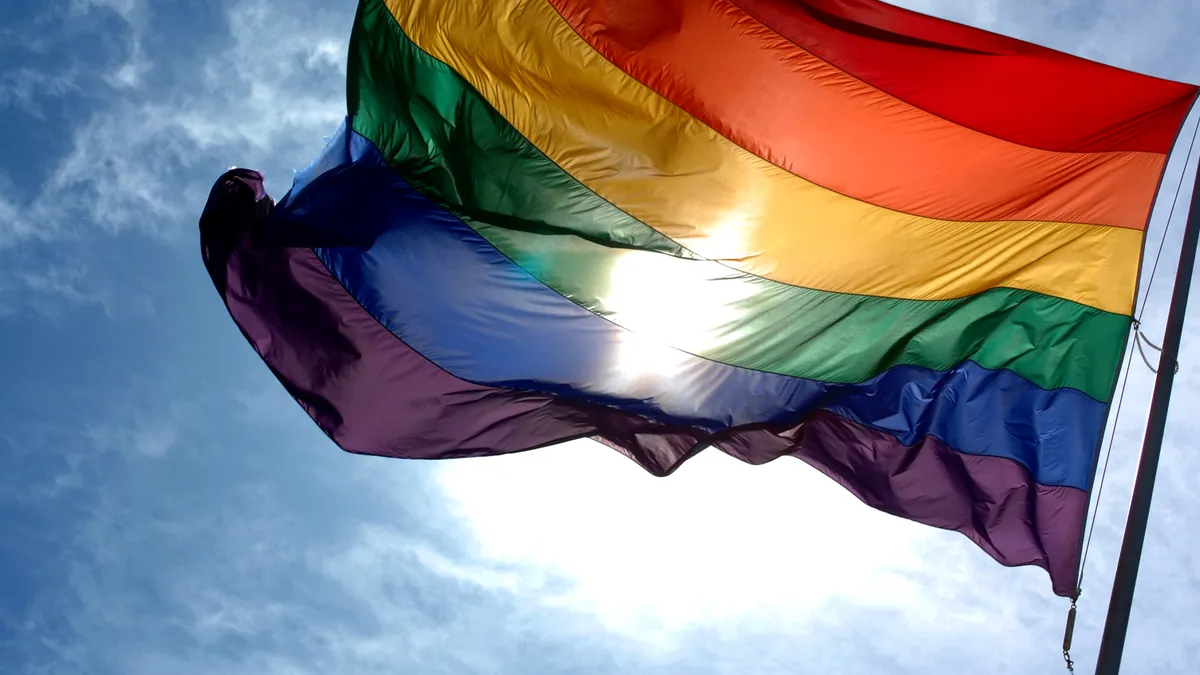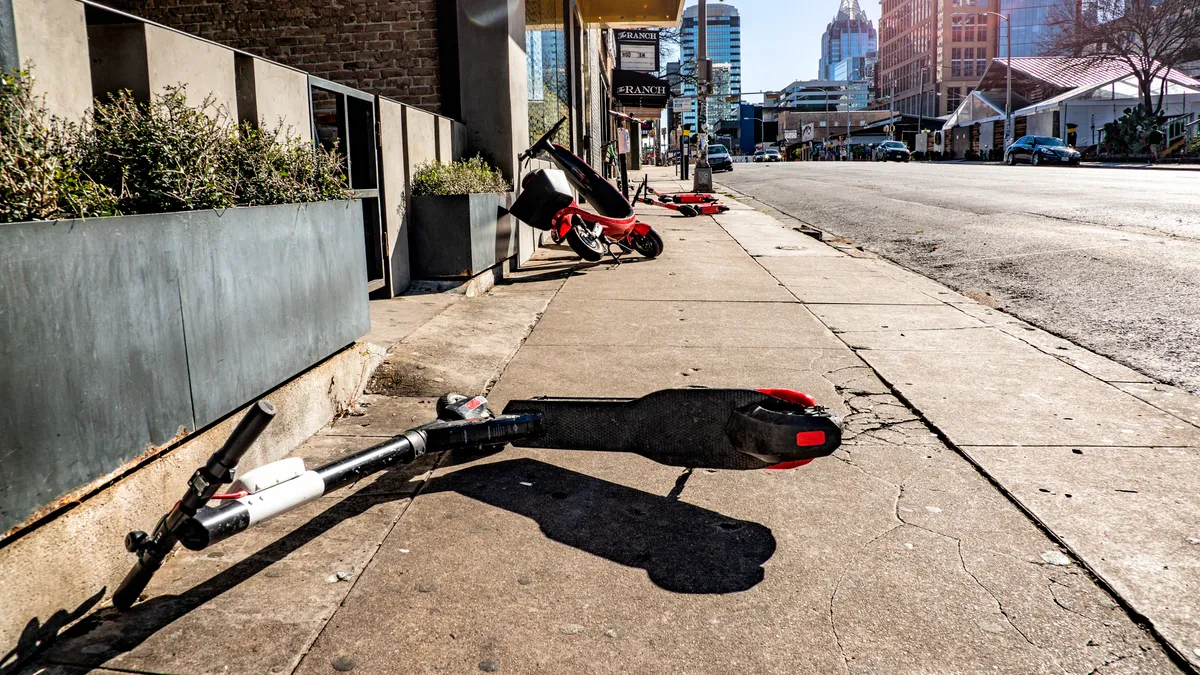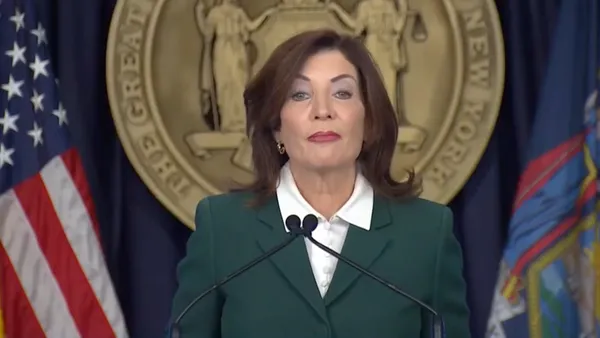Dive Brief:
- A record-setting 78 cities earned perfect scores for their LGBTQ inclusion in municipal law, policy and services in a report issued by the Human Rights Campaign (HRC).
- HRC released its seventh annual Municipal Equality Index (MEI) rating cities for LGBTQ inclusion, and had new benchmarks this year, including ensuring equal access to single-user facilities in public spaces and protecting LGBTQ youth from bullying in city services.
- "Forward-looking leaders across the U.S. are stepping up, protecting their youth from so-called ‘conversion therapy,’ increasing anti-bullying protections, ensuring transgender city employees have access to inclusive health care benefits and protecting LGBTQ people from discrimination in all areas of life," HRC President Chad Griffin said in a statement.
Dive Insight:
In addition to having initiatives that close the digital divide, increase affordable housing and help reduce the income gap, cities across the country have fought hard to promote LGBTQ rights and equality. This year’s findings, which rates cities large and small on 49 criteria and a final score out of 100, should have plenty of encouraging signs. And while 15 cities scored 0 points, the number that are in the upper reaches of HRC’s findings is growing, as is the average score nationwide.
Also of note in the report is the emphasis on local leadership, with cities excelling despite the absence of LGBTQ-friendly state laws. That is in keeping with similar public statements from New York City Mayor Bill de Blasio, Chicago Mayor Rahm Emanuel and de Blasio’s predecessor in office Michael Bloomberg. "In this political moment, as we face unprecedented challenges to fairness, justice, and democracy at the federal level, we look to local leadership in advancing equality for the LGBTQ community," Rebecca Isaacs, executive director of the Equality Federation Institute, said in a statement.
Much like all the other initiatives cities have underway, they will be determined to keep up the forward momentum, as an inclusive city is a smart city. Such initiatives have already borne fruit among other groups, with the likes of Inclusive Innovation for Smarter Cities promoting urban design and technology that reaches the disabled, while Austin, TX piloted a scheme to provide real-time bus information to the blind and Microsoft released an app to help the blind navigate cities.












